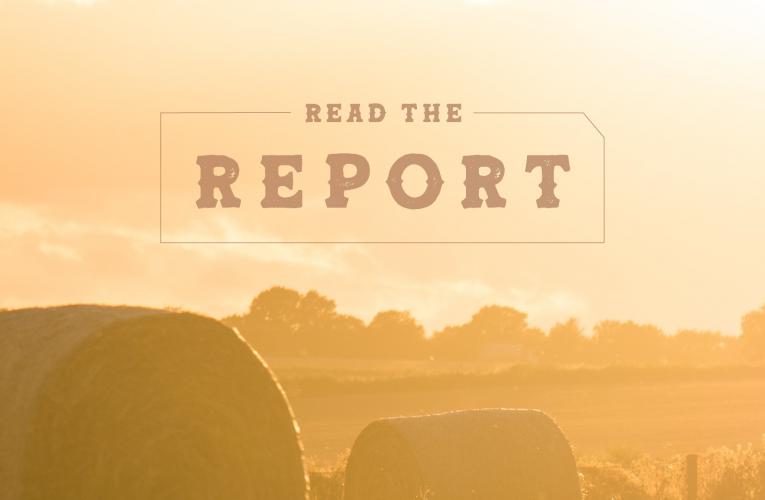“For rural voters, it is not a contradiction to consider yourself pro-environment and yet oppose or have strong reservations about the government’s environmental policies,” said Robert Bonnie, executive-in-residence at the Nicholas Institute, who led the study.
“In our research, we repeatedly heard rural voters share strong support for conservation and environmental protection in the abstract, but then raise concerns for the impacts or efficacy of government environmental policies,” he said.
This concern about government overreach wasn’t just a function of political party. Rural Democrats, Republicans and independents all showed less support for federal oversight of the environment and greater preference for policies that are overseen by state or local government that give local residents a greater say in managing their own resources.
“My hope is that this will help us understand how to find common ground with rural constituencies and bridge the urban-rural divide. If rural voters are more comfortable with policies that allow for state and local partnerships and collaboration with rural stakeholders, then this could be an effective approach for enacting nationwide climate measures,” said Bonnie, who teaches courses at the Nicholas School and graduated from the school with master’s degrees in forestry and environmental management in 1994.
Rural voters aren’t rejecting environmental regulation, he added. They understand the need for policies that protect the environment and have a relatively sophisticated understanding of the economic trade-offs. What they are doubtful about is the ability of the federal government to do this well and not increase hardships in rural communities.
To illustrate the point, Bonnie recalled interviewing one farmer from South Dakota who said, “I’m going to sit here and tell you that the climate is very different than it was when my dad was farming the ground. (But farmers) are almost hesitant to say it because they are afraid of the policy consequences once everybody admits it.”
We found that messages that appeal to rural Americans’ sense of moral responsibility and their interest in acting on behalf of future generations were effective ... but the messenger may be more important than the message.”
Robert Bonnie, executive-in-residence, Nicholas Institute
The new report comes amid a growing push by scientists, many lawmakers, and a majority of the American public for climate action following years of record-breaking wildfires, floods and other extreme natural disasters. However, major legislation is unlikely to clear Congress without at least some backing from rural industries like agriculture and forestry, which in the past have opposed proposed federal climate policies.
To help find ways to spur new support, Bonnie’s team examined who rural voters trust for information on the environment and which messages are most likely to resonate with them.
“We found that messages that appeal to rural Americans’ sense of moral responsibility and their interest in acting on behalf of future generations were effective,” Bonnie said. “But the messenger may be more important than the message.”
Ranchers and farmers emerged as the most trusted sources of information, followed by university scientists and government experts. Environmental advocacy groups were far less likely to be viewed as trustworthy.
Interestingly, although voters said they trusted university scientists, they also said they rarely received information from them. This, Bonnie said, suggests that developing new pathways to deliver scientific information to rural Americans could be an important focus for policy and outreach.
Bonnie designed the research and wrote the new report with fellow Nicholas School alum Emily Pechar Diamond, now an assistant professor of communication studies and marine affairs at the University of Rhode Island. Diamond earned a PhD in environmental policy from the Nicholas School and Duke’s Sanford School of Public Policy in 2019. Her doctoral thesis was “Depolarizing Environmental Policy: Identities and Public Opinion on the Environment.”
Elizabeth Rowe, a second-year Master of Environmental Management (MEM) student at the Nicholas School, helped conduct the research and co-wrote the report.
Six other Nicholas School students, including five MEMs and one undergraduate, helped design and conduct focus groups for the project as part of a Democracy Lab course project led by Bonnie and Diamond.
From late 2017 through 2019, the team held focus groups with about 125 rural voters in the West, Midwest and South and polled more than 2,000 additional rural and urban voters by phone and online. They also interviewed 36 leaders from local government, farming, forestry, business and conservation districts, including leaders in the African-American landowner community and tribal governments.
The polls, focus groups and interviews highlighted some intriguing commonalities and differences between rural and urban Americans’ attitudes on the environment.
Clean water is the highest environmental priority among both groups, but rural voters were, at the same time, much more likely to voice concerns about the Clean Water Act’s adverse impacts on farmers and other members of their communities.
Many of these voters though, “showed a powerful commitment to protecting the environment, motivated in large part by a strong place identity and desire to maintain local environmental resources for future generations,” said Diamond.
These attitudes are reflected in the high importance rural Americans place on issues such as farmland conservation, soil and water conservation, and having clean air for their children to breathe – all of which can yield tangible and sometimes immediate local benefits – in contrast to the much lower priority they place, compared to urban voters, on global issues with deferred benefits, such as climate change.
“If you emphasize win-win solutions and appeal to people’s moral responsibility, rural voters are more likely to respond positively. But bridging the urban-rural divide will require more than just new talking points,” Bonnie said. “It will require engagement and new partnerships with rural stakeholders and rethinking the design of our environmental policies.”





